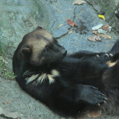laundry0099@bookwyrm.social apžvelgė autoriaus Robin Wall Kimmerer knygą Braiding Sweetgrass
Review of 'Braiding Sweetgrass' on 'Storygraph'
5 žvaigždutės
This book has permanently changed the way I think about the world. It made me so overwhelmed with emotions that at times I had to set down my phone and cry for a few minutes. But it is beautiful. It is poignant and important and it has given me renewed hope for a world that is increasingly terrifying.
This book has permanently changed the way I think about the world. It made me so overwhelmed with emotions that at times I had to set down my phone and cry for a few minutes. But it is beautiful. It is poignant and important and it has given me renewed hope for a world that is increasingly terrifying.






